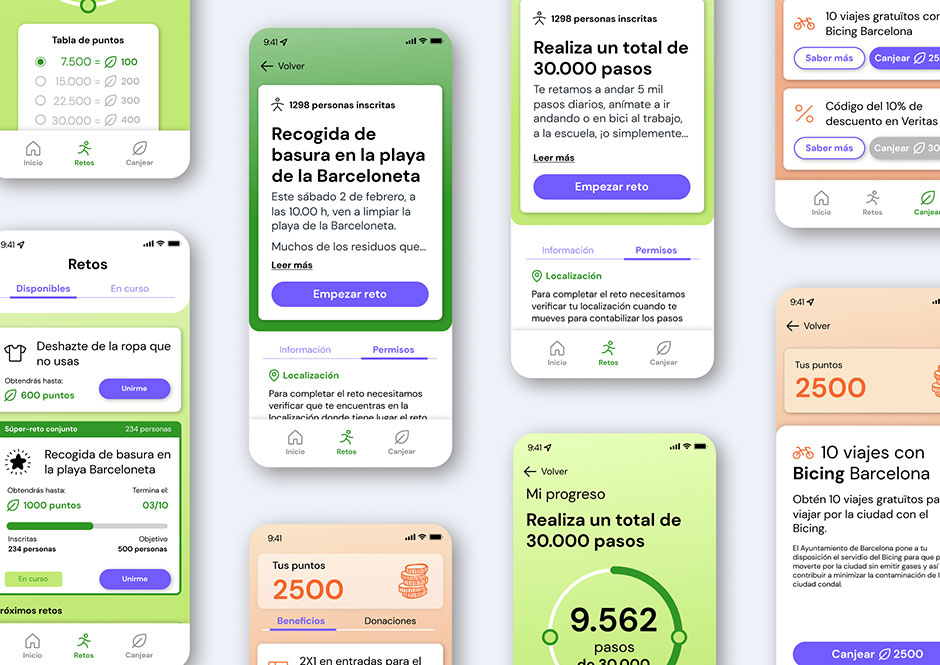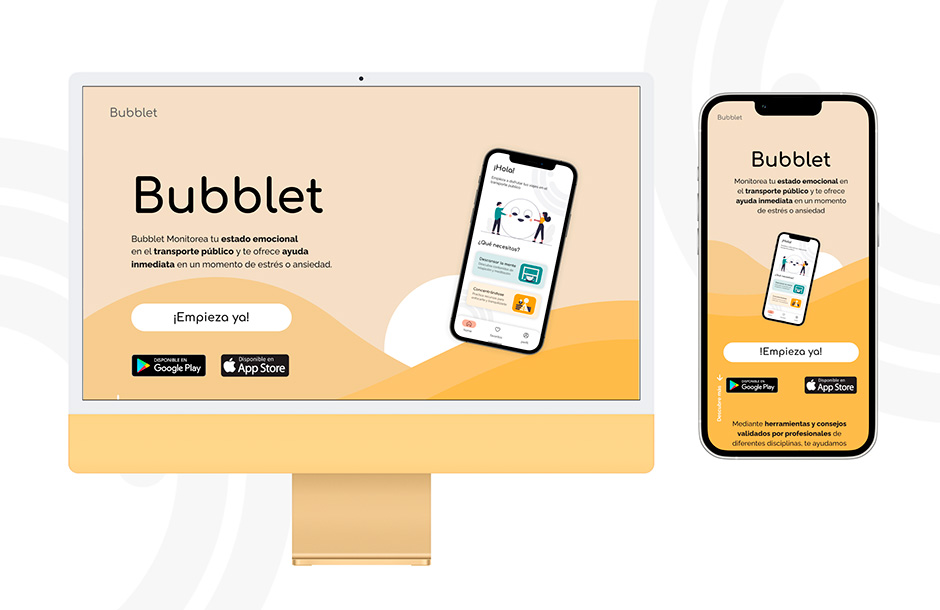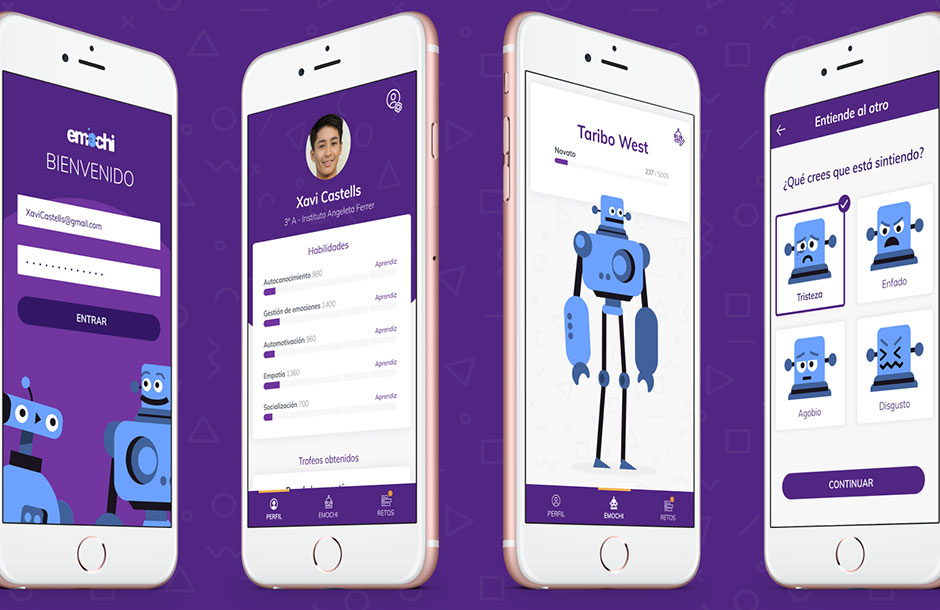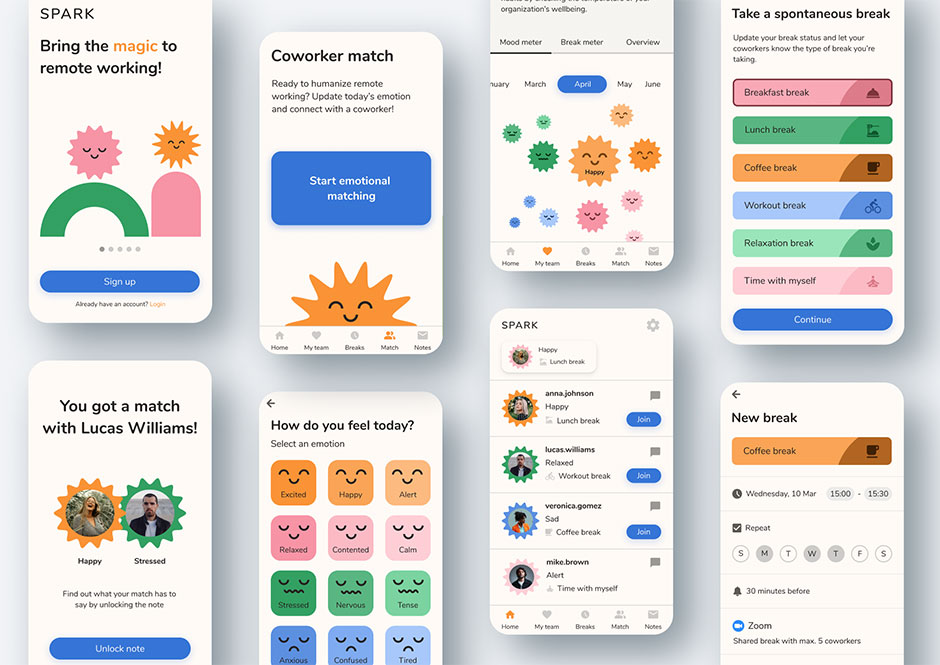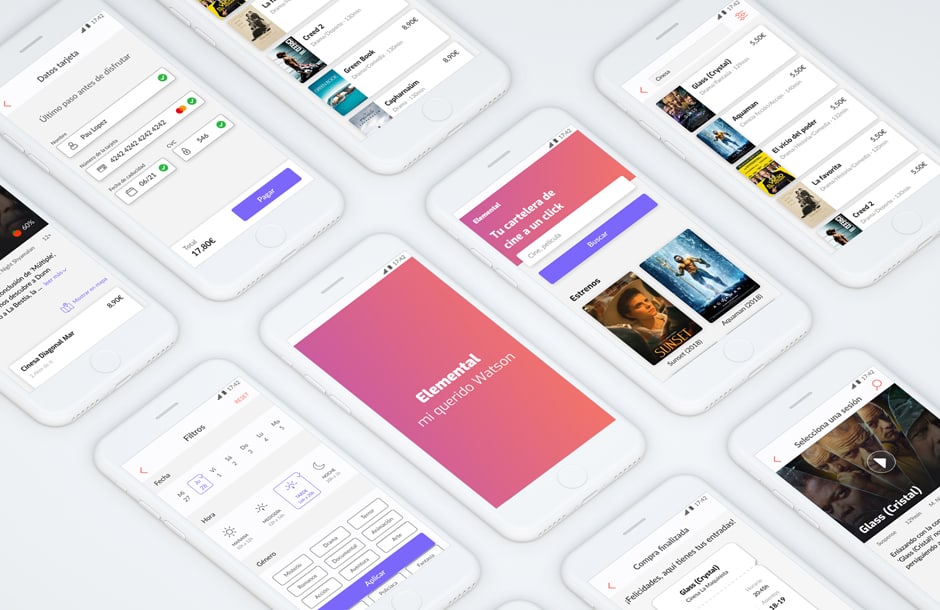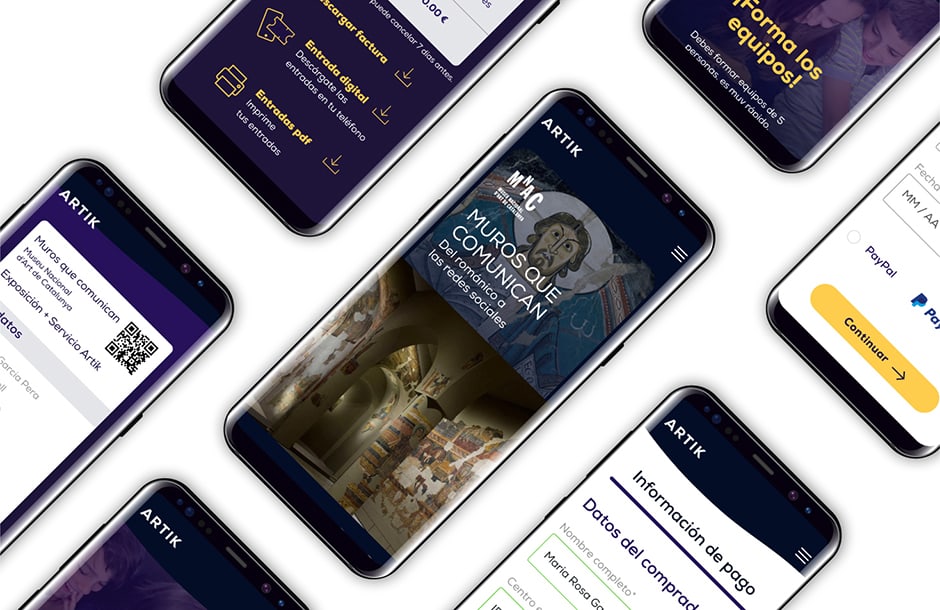
Master in Digital Experience Design
Learn how to design the ideal consumer experience in relation to a brand and create memorable digital experiences that will turn users into customers.
Description of the curriculum
- Edition: 7th
- Teaching period: from October 2024 to June 2025. Final master's project presentation: June 2025
- Schedule: from Monday to Thursday from 6 p.m. to 9 p.m.
- Modality: on-site
- Language: Spanish
- Price: 9.320 €
- Qualification: Master's Degree in Digital Experience Design awarded by the UVic-UCC
- Credits: 60 ECTS
Presentation
We will teach you to go beyond the visual layer to design an ideal brand experience for the consumer. To this end, we will learn to investigate the context, define archetypes, identify problems and needs, detect opportunities and pain-points and, of course, design the perfect Customer Journey.
Agile digital product development techniques will be applied to facilitate working in an incremental and iterative fashion, along with the Google Ventures Design Sprint methodology which allows us to face the challenges or points for improvement that we have identified in the Customer Journey, while always focusing on the business vision.
Words like Discovery, Research, Ideation, Journey, Prototyping, Sketching, Sprint and Release will become part of your everyday vocabulary.
Syllabus
Module 1 - CX Strategy (Customer Experience) Module 2 - Experience design Module 3 - Front-end programming Module 4 - Digital business Module 5 - Final Project
Programme
Module 1 - CX Strategy (Customer Experience)
Learn to create memorable customer experiences by transforming the Customer Journey and generating desire and excitement at each touch point.
- Customer Research.
- Design Thinking.
- Customer Journey Map.
- Insights y oportunidades
- Etnographical observation.
- User Test.
- Qualitative and quantitative approach.
- Design Sprint.
Module 2 - Digital Experience Design
To achieve a memorable experience, we must design products that meet needs and delight our users. For this we will focus on the design process of a digital product, from conceptualization to the creation of functional prototypes. We will use the tools and methodologies used in the industry and we will develop a personal portfolio.
- Fundamentals: Typography, colour, layout and contents
- UX / UI design
- Apps
- Interaction design and prototyping
- Design Systems
- Emotional design
- Information architecture
- Methodologies and tools
- Argumentation and presentation
- Portfolio and Personal brand
Module 3 - Front-end Programming
Implement the front of a web project autonomously. Acquire advanced knowledge of HTML, CSS and knowledge of No code tools.
- HTML.
- CSS.
- No code
Module 4 - Digital business
In this module we will give the basic notions about digital business. We will talk about business models, how to align ourselves with business objectives, Customer Development, Lean and Digital Marketing.
- Agile approach
- Business models.
- Lean.
- Analytics.
- CRO (Conversion Rate Optimization).
- CPP/*SMM.
- SEO.
Module 5 - Final Master's Thesis
The goal of FMT is to let students to experience first-hand what it means to transform a customer experience from the creation of digital products.
We will propose to students the challenge of creating the Customer Journey of a given experience, designing the ideal Journey and implementing the digital actions necessary to transform the experience by improving a product or service. Students will be responsible for designing digital strategies, products or services.
Master Class with companies:
We will have the opportunity to visit or receive in class professionals from leading companies in the digital sector. In this way, we will see how they work, what projects they do and how companies like Mango, Designit, Thoughtworks, Hanzo, Materia Prima, The Cocktail, Failfast or Runroom, among others, are organized.
Teachers
Coordinator
Cesar Úbeda
Chief Experience Officer at Runroom
Coordinator of the Master in Digital Experiences Design
Jordi Hernandez
CIO & Founder en Runroom
Jorge Valencia
Head of Experience Design at Runroom
Laura Polls
CX Researcher
Annachiara Sechi
Head of Communications at Runroom
Jose Saura
Frontend Developer at Stooa
Jorge Agundez
Agile Software Developer at Runroom
Sarah Romero
Product Designer at eDreams ODIGEO
Career opportunities
- UX Researcher.
- UX/UI Designer.
- Digital project manager.
- Front-end developer.
Associated company
The Master in Digital Experience Design is closely linked to Runroom, an agency specialised in digital business consultancy, in order to offer real case studies and to understand and implement new trends, methodologies and digital technologies that connect people with business.
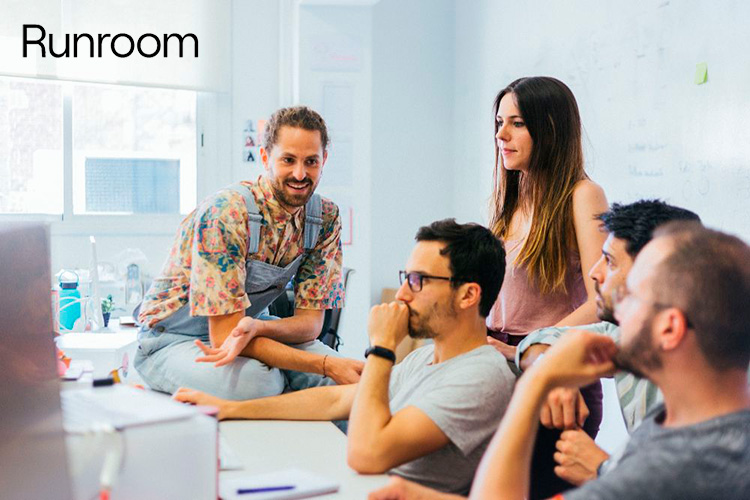
Payment methods
Total cost of the course: 9.320 €
The total cost includes an amount of 200 € concerning the university fees, the administration expenses and the compulsory insurances.
Payment methods
BAU, Arts and Design College of Barcelona offers different terms of payment:
-
Single payment
-
Part payment, in 3 instalments:
-
1st payment, due on enrolment: consisting of 40 % of the fees excluding taxes. An amount of 200 € concerning the university fees is added to the resulting cost
-
2nd payment, due November 5: consisting of 30% of the course excluding taxes
-
3rd payment, due January 5: consisting of 30 % of the course excluding taxes
-
Students and former students of BAU benefit from 10% discount on any of the courses if they have exceeded at least 50% of the credits for a Degree, Higher Degree in Design or the Diploma in Graphic Design; or 100% of the credits for any of the Master’s or Postgraduate degrees.
More information about scholarships and grants.
Information about the registration process.
Academic regulations for Masters and Postgraduate Degrees of BAU.
Download the brochure
Enter your details and we will send you an email with the Master in Digital Experience Design brochure.
